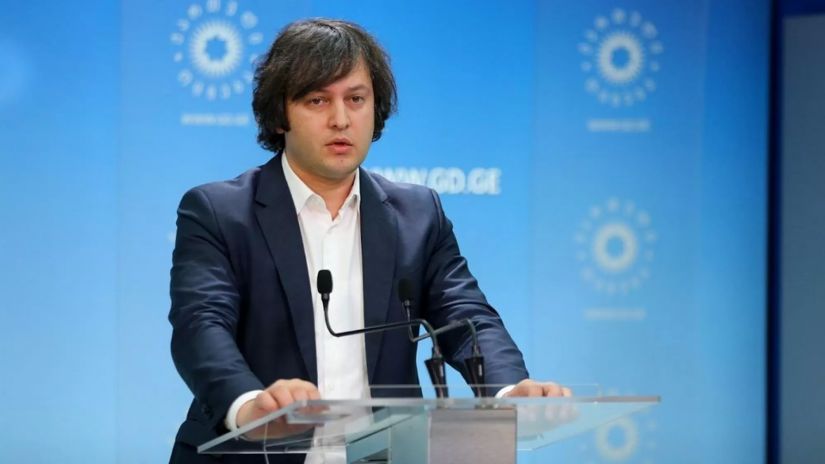
TBILISI, DFWatch–After talks between Georgian Dream and the opposition failed to defuse the political crisis, the ruling party in Georgia has started to weigh in with threats of revoking registration for the largest opposition party and stripping others of state funding.
On Thursday, Irakli Kobakhidze, the Georgian Dream executive secretary, said that a bill against “parliamentary sabotage” was submitted to parliament a day earlier, which would impose heavy sanctions on opposition parties that qualify for seats in the parliament but decide to boycott it.
In addition, the bill threatens to revoke the registration of Georgia’s largest opposition party, the United National Movement. The pretext for this may be the fact that its leader, ex-president Mikheil Saakashvili, doesn’t have Georgian citizenship and is wanted on criminal charges. The government’s proponents claim this violates Georgian electoral legislation and may result in revoking UNM’s registration, which would mean the party could no longer take part in elections.
Another painful blow might be the cessation of state funding for the eight opposition parties, which is in many cases their main source of income. In addition, MPs who permanently miss parliamentary sessions will not be able to receive salary as MP or other benefits.
The bill also deprives the opposition parties of free airtime on Georgian private television stations, which has traditionally been very important in the parties’ advertising campaigns.
These sanctions, if approved by parliament, will take effect for one year, although they may be extended indefinitely. This will deprive the opposition of the resources it needs for the 2021 local elections.
“Parliamentary sabotage carried out by radical opposition parties […] is an action against the state and its democratic institutions, which requires an appropriate legal response. This bill will be adopted by the parliament by the end of next week,” Irakli Kobakhidze said.
After the October 31 election, which was assessed as satisfactory by international observers, all eight opposition parties which passed one percent threshold refused to accept the results, complaining of mass rigging and demanded to hold another election. Otherwise, they threatened to boycott the parliament.
After weeks of unsuccessful negotiations facilitated by US and EU diplomats, most opposition parties have annulled their party lists and officially renounced their mandates. The first sitting of parliament was attended by only GD MPs with nobody from the opposition flank present.

